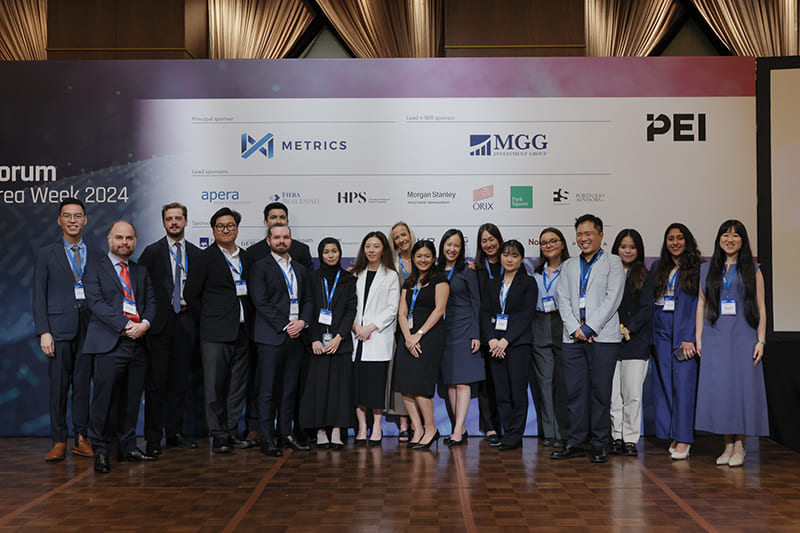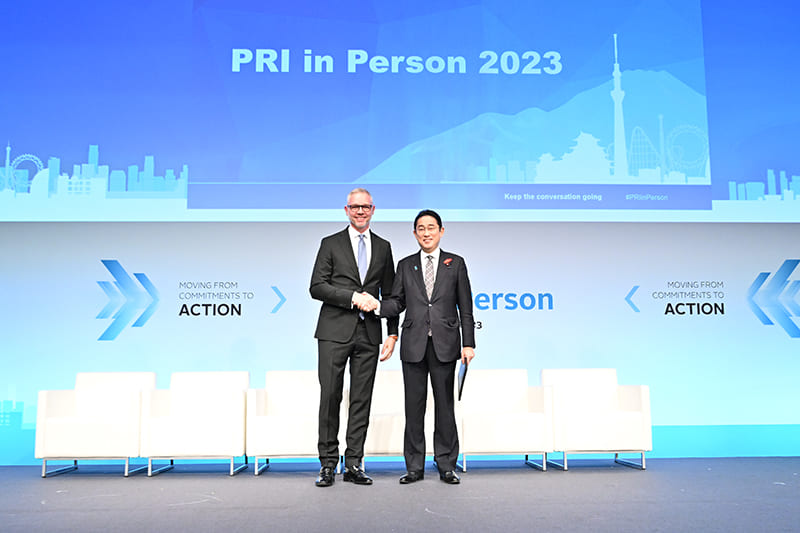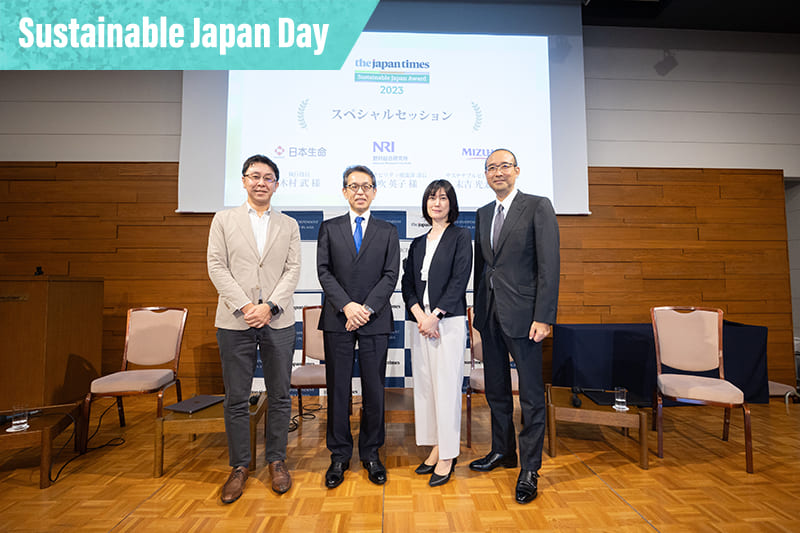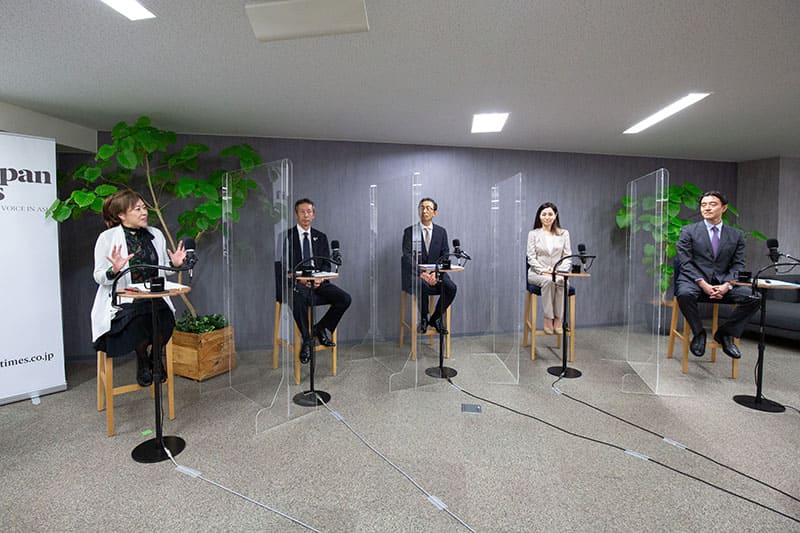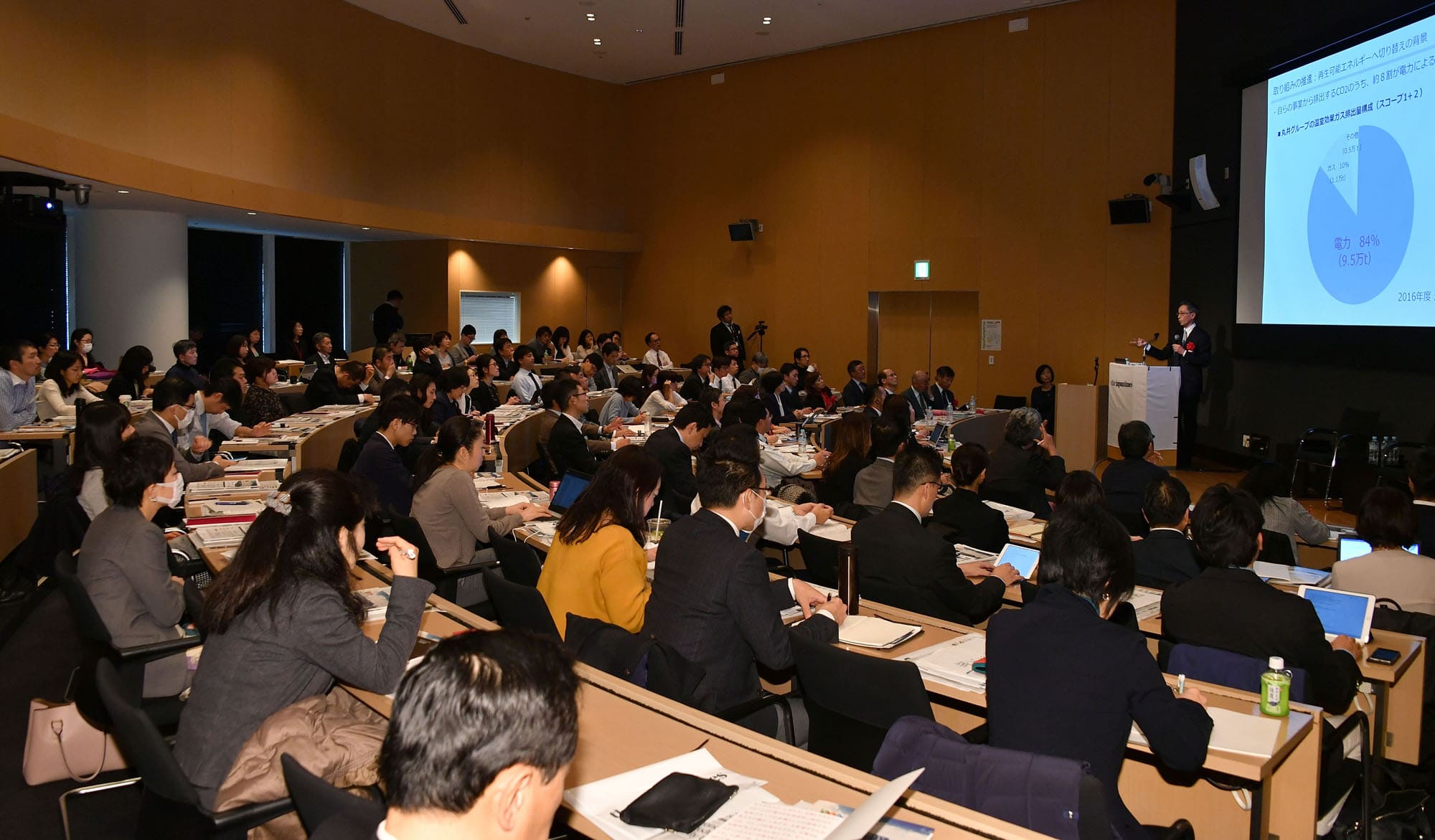June 16, 2023
How to avert a planetary tipping point: RI Japan forum
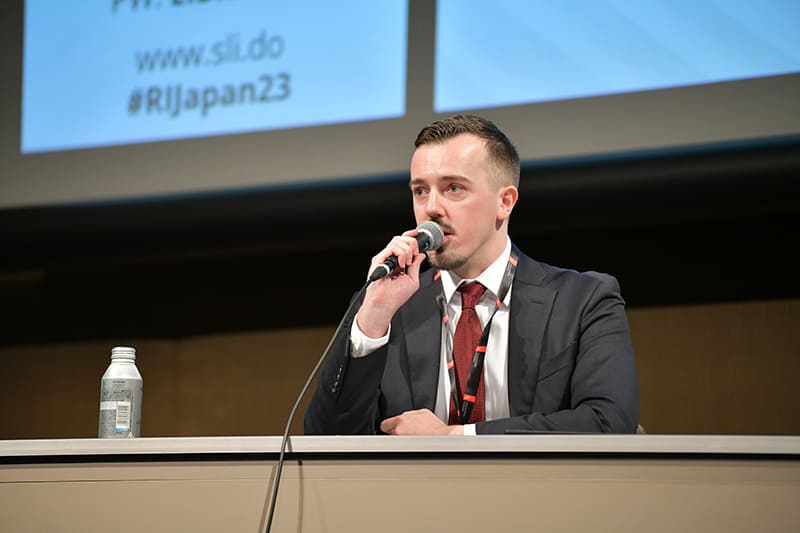
With a focus on sustainability, human rights and the transformation of Japan into a net-zero-carbon economy, the Responsible Investor Japan 2023 conference, held at Toranomon Hills Forum on May 24 and 25, brought together opinion leaders, investors, nonprofits and government agencies to find out how theoretical and practical issues can meld with a new era of sustainability-conscious capitalism.
The two-day RI Japan in Tokyo’s Minato Ward featured discussion panels on topics like the standardization of environmental, social and governance (ESG) metrics on a global scale, ESG disclosure with regard to Japan’s financial markets, biodiversity loss, the greening of supply chains and mapping out scenarios for climate change.
Shinichi Kihara, deputy director-general for environmental affairs at the Ministry of Economy, Trade and Industry, provided a keynote address highlighting the importance of promoting transition finance in Japan to help corporations rapidly switch to more sustainable practices.
Greening business ecosystem
The conference also included a networking breakfast and other networking events that provided valuable opportunities for opinion leaders to make their case on a more personal level, and for key players to make contacts across the sustainable business ecosystem.
It also provided attendees a chance to speak with nonprofit and company representatives, some of which had set up information booths inside the forum. These included the FAIRR Initiative, a London-based collaborative investor network that raises awareness of ESG risks brought about by intensive livestock production. Sofia Condes, head of investor outreach at FAIRR, who presented information at the booth, spoke to participants about unsustainability in the aquaculture industry, where much of the overfishing is a result of feeding fish to other fish, and FAIRR’s efforts to work with industry players toward more sustainable practices. Other information booths were attended by the investment bank Morgan Stanley, the investment research group Morningstar and the consultancy KPMG among others, all showcasing their ESG credentials.
Financing Japan’s strategy
With over 30 discussion panels, forums and related events held over the two days, the conference managed to showcase some of the key industry leaders and opinion makers addressing the pressing environmental challenges faced by humanity.
Among them was a plenary session titled “Accelerating Japan’s Path to Net Zero Through Green Transformation.” The discussion featured Atsuko Kajiwara, managing executive officer and head of sustainable finance evaluation at the Japan Credit Rating Agency; Reiko Hayashi, director and deputy president at BofA Securities Japan; Satoshi Ikeda, chief sustainable finance officer at the Financial Services Agency; Fumihiro Kajikawa, environmental economy officer at the economy ministry; and Robert Youngman, team leader of green finance investment at the Organisation for Economic Co-operation and Development.
The key aims of the discussion were to assess how realistic green transformation policies for achieving carbon neutrality by 2050 are, as well as the role that transition bonds and transition finance can potentially play, plus gauging what lessons can be learned from other OECD countries.
Kajikawa began by saying that despite Japan being a laggard within the OECD, the ministry believes that the green transformation should be viewed as an investment rather than a cost: “Fossil fuels and hydrocarbons will become stranded assets.” Ikeda was not convinced about Japan’s laggard status, saying: “Since the 1970s energy shock, Japan has been working on energy conservation. Japanese business has been leading in energy-efficiency technology, and what we have already been building may fall behind without continued financial support.”
Hayashi saw Japan’s green transformation from a global perspective and didn’t share Ikeda’s positive sentiment. Hayashi said that among the Group of Seven countries, Japan had consistently tried to water down agreements on carbon reduction, although she believes things are beginning to change. “Building consensus in Japan is a challenge,” she cautioned. “We must build consensus with stakeholders across the board. We are in a huge international experiment, and it’s important to align our goals.”
Regarding transition finance, Kajikawa described the differing “carrot and stick” approaches being taken overseas. Europe is using regulations, while the U.S., especially in light of the recently passed Inflation Reduction Act by the Biden administration, is incentivizing the market mainly through targeted tax breaks and deregulation, and Japan is using a hybrid approach including tax incentives, regulation and the issuance of green bonds.
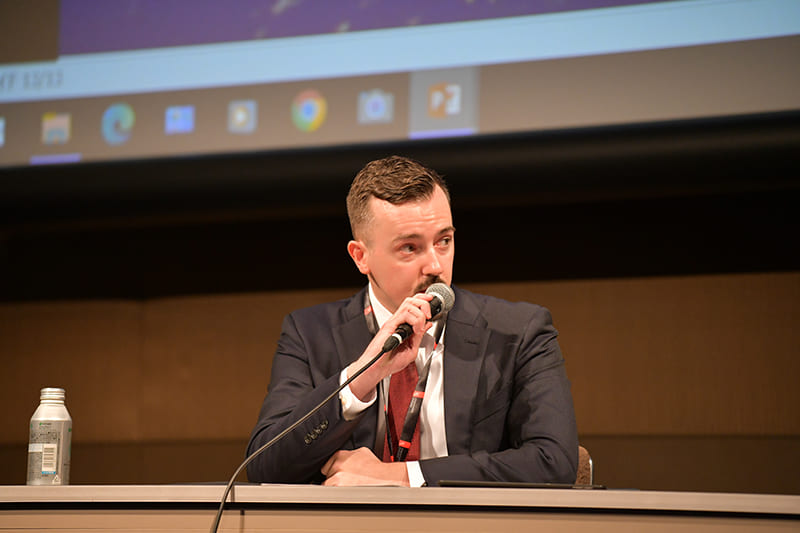
Investor-led rights revolution?
The forum “Integrating Human Rights Into the Investment Process” examined the extent to which financial institutions are responding to external pressures on human rights issues, the drivers of change, and practices taken by financial institutions. Joining the panel were Asako Nagai, managing director of the organization BSR (Business for Social Responsibility); Andrea Webster, financial system transformation lead at the World Benchmarking Alliance; Michiyo Morisawa, head of Japan at PRI (Principles for Responsible Investment); and Kana Kawasaki, head of business development for Morningstar Indexes, Japan and South Korea.
The discussion began with all the panelists agreeing that Japanese multinationals will have to ensure due diligence on human rights within their value chains. Kawasaki said that while each company makes its own investing decisions, Morningstar has the human rights data to allow corporations to integrate the cost of human rights into their investments. Morisawa expanded the definition of human rights: no discrimination by work style, no use of forced labor, ensuring clean water and hygiene, and protecting the environment. Morisawa called for greater transparency for multinationals’ supply chains. Kawasaki agreed with Morisawa and said Morningstar’s data could help companies identify areas for improvement.
Webster agreed there is a need for greater sharing, saying, “Companies need to break down the silos and share information with each other.” European investment funds are very strong on ESG commitments, she said, and their data could be used by Japanese companies. “It’s important that human rights should not be an afterthought. It shouldn’t be a ‘nice to have,’ but should be central to investing stewardship.” Webster added that companies should not let insufficiency in data keep them from moving forward on human rights. Kawasaki hoped for investor-led demand on human rights, which would be in their own interest: “Return always exceeds costs — investors will get a payoff if they push companies to be proactive on human rights.”
Need to plan for the worst
Despite the best efforts toward a green transformation, the world also needs to plan for the worst, and in the forum “Climate Change Scenario Planning,” panelists discussed financial risks associated with delayed action, the accuracy of modeling, and financial planning in uncertain times. Moderated by Chris Russell from The Japan Times, it was attended by Motoshi Tomita, a research scientist from Japan’s Central Research Institute of Electric Power Industry; Yoko Monoe, a senior consultant at Mercer Japan; Tomohiro Kuchino, director at KPMG; and Simi Thandi, a climate economist at the FAIRR Initiative.
Tomita began the discussion by conceding that planning scenarios is very difficult because action is still not guaranteed. Monoe added some clarity by presenting a chart that could be used for investors, describing parameters for various investment scenarios — rapid transitions with a temperature rise of 1.5 degree Celsius, orderly transitions with a rise of 2.0 degrees, and failed transitions with 4.0 degrees and above — and juxtaposed the differing disruptions to business environments caused by climate change in quick and slow transitions. Monoe suggested that investors do investment modeling for all three scenarios.
Thanbi spoke about risks and opportunities in the livestock sector and the risk to food security, said only six out of 40 companies FAIRR dealt with had conducted planning on climate risk scenarios and added that she believes this is an urgent issue that needs to be addressed. Kuchino agreed, explaining that KPMG now provides climate modeling for clients to assess risk. “For a 1.5 temperature rise, a well-diversified portfolio will have the best return,” he said. Monoe warned, however, that “for most companies, the tipping point has not been factored in.”
The burden of knowledge
The first day finished with a cocktail reception at which many of the attendees and panelists had an opportunity to discuss and process the information they had heard. The atmosphere had grown increasingly subdued over the course of the day, with the alarming statistics leaving many of the attendees nearing their own tipping point.

